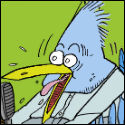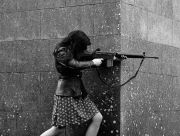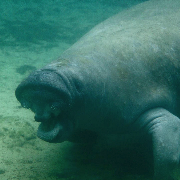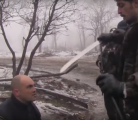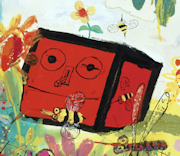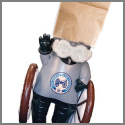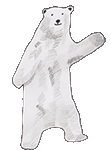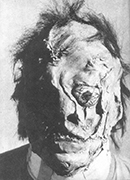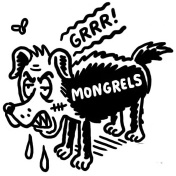|
For anyone interested in WWI, I feel this book is a must: It's by Swedish author Peter Englund, who's at the Nobel Prize Academy, and noted Swedish historian. This book is basically a collection of diary notes from the Great War, from all kind of people; there's Willy Coppens, famous fighter ace for the Belgian Airforce; Alfred Pollard, infantryman in the BEF; Michel Corday, a French stateman; Kresten Andersen, a Dane volunteer in the German army, and a whole bunch of other souls who one way or the other was affected by the war. Some will die along the way, which makes it all the more painful when you remember that these men and women were all real. They had dreams, hopes, plans for the future, and they share this with us, a hundred years later, through the excellent compilation work by Englund. While it's chiefly concerned with "micro"history (i.e. the smaller scale), Englund includes very informative footnotes when it's called for, and many of these contain some very obscure, but relevant information that I think even the most die hard WWI historian would be surprised to read about. In all fairness, I've only read this book in Swedish, so I can't comment on the English translation, but hopefully it does the job. I would also like to point out that if you are Swedish, or can read Swedish, then there's an even better deal out there: namely, the same book, but extended over 5 volumes (of which the last will be published next year) that adds more lifestories, and fleshes out each war year. So book one is 1914, next comes 1915, etc. I can't seem to find these extra volumes in English, which is a shame, because having read the Swedish ones, I can safely say that they are worthwile to get, even if you have the original.
|
|
|
|

|
| # ? May 28, 2024 04:14 |
|
BigglesSWE posted:For anyone interested in WWI, I feel this book is a must: Does it have anything to say from the millions of Asian and African soldiers who died fighting for their colonial overlords?
|
|
|
|
fridge corn posted:Does it have anything to say from the millions of Asian and African soldiers who died fighting for their colonial overlords? It does include an account of a British soldier fighting the Germans in German East Africa. Englund is not the type of historian who tries to keep a neutral tone in his writing, and his description of the treatment of Africans does not try to shrug away any wrongdoings. But texts from colonial troops themselves? No, Iím sorry to say that in this, the book lacks. It does touch on one of the grimmer aspects of the war though. Through the eyes of Rafael de Nogales (who I best can describe as a man with a never ending thirst for warglory) we get some disturbing descriptions of the Armenian genocide of 1915. de Nogales was an Argentinian who volunteered in the ottoman army (after trying with Belgium and a list of other entente-nations; clearly he didnít really care for whom he fought) and saw firsthand the treatment of Armenians and other minorities by the ottoman army. I shouldíve been clearer that this is not a book that is solely focused on the western front; the Italian alps, the eastern front, Serbia, Mesopotamia, itís all there. The first volume of the extended series adds a German sailor on a merchant-hunter in the Far East, but that is as close we really get to that little corner of the warring world. Also remember that the basis for this book, the very structure, is dependent on notes from the war participants themselves. I am unaware of any published works from colonial veterans, but would obviously be very interested if any was available in English or Swedish!
|
|
|
|
As far as I know, nobody's written English-language primary-source-based works about colonial soldiers outwith academic publishing and there are no English-language autobiographies. You will find quite a few layman's-audience books that attempts to give an overview of the colonial soldier's experience, some of them with occasional primary source exceprts, but nothing dedicated solely to primary sources. The closest thing you'll get is something like Indian Voices of the Great War, a collection of letters which you can have for just yer £32.76; or you can read things written by their white officers, more of which go out of copyright every year.
|
|
|
|
I enjoy reading about WWI. Thank you for the extensive post about this title.
|
|
|
|
So I'm going to be backpacking thru Nepal, Thailand, Cambodia and Laos. Any non-fiction recommendations that involve these countries? I know the Vietnam war looms large here, but I'm interested in more off beat topics as well.
|
|
|
|
Ramrod Hotshot posted:So I'm going to be backpacking thru Nepal, Thailand, Cambodia and Laos. Any non-fiction recommendations that involve these countries? I know the Vietnam war looms large here, but I'm interested in more off beat topics as well. I was going to suggest The Sacred Willow by Duong Van Mai Elliott which is a sort of history and autobiography of four generations of the author's family starting with her great-grandfather who served as a mandarin in imperial Vietnam and going through to the war and the family's flight during the war and resettlement in america but I just realised you're not actually going to Vietnam so idk. It was an interesting book if a bit boring to read iykwim
|
|
|
|
Only my two cents but the The Beauty and the Sorrow was one of the best books I read during my undergrad. I highly recommend it to anyone interested.
|
|
|
|
history book thread! I would like as many recommendations as you can give me about the Gilded Age and robber barons/railroads in particular. Also, a handful of books on the Civil War/Reconstruction to properly contextualize the Gilded Age.
|
|
|
|
ketchup vs catsup posted:history book thread! Eric Foner's Reconstruction is THE text on Reconstruction specifically, though for what you're wanting, I'd recommend Richard White's The Republic for Which it Stands, which covers from 1865-1896 and is a really good survey of the last half of the 19th century.
|
|
|
|
Fighting Trousers posted:Eric Foner's Reconstruction is THE text on Reconstruction specifically, though for what you're wanting, I'd recommend Richard White's The Republic for Which it Stands, which covers from 1865-1896 and is a really good survey of the last half of the 19th century. I will start with both of those, thanks! if anyone has any other recs, please let me know.
|
|
|
|
ketchup vs catsup posted:history book thread! It's tangential, but I loved the book so much. "The Prize" by Daniel Yergin is a history of the oil industry from its beginnings in Pennsylvania and talks a bunch about Rockefeller and the early oil industry. The majority of the book takes place in the 20th century, but that first part is right up your alley. I would consider the end of the Gilded Age to be the breakup of Standard Oil, so there you go.
|
|
|
|
I recently finished The War Of Austrian Succession, and felt like it was a very good one-book overview/summary of a fairly complex war that treated the war and diplomacy with a good amount of focus given the book's scope, albeit at the cost of underselling some of the colonial and social/cultural issues at play. If anyone'e interested in a quickish way to learn about that war, I'd recommend it. Anyone have any similar recommendations for either the seven years' war or the war of spanish succession? Generally looking for a good survey one-volume history that doesn't focus too closely on any single aspect of the wars, but doesn't outright omit/neglect anything either. https://www.amazon.com/War-Spanish-Succession-1701-1714/dp/1781590311/ref=pd_sim_14_3?_encoding=UTF8&psc=1&refRID=3J574VQE0RWV7QN5SA8J seems similar to what I want for the one war, but the reviews are kind of spooking me with the criticism of omitted major events, lackadaisical approach to chronology, and shoddy editing. I've not found *anything* for the seven years' war as a book that doesn't laser focus on the part of the war that's in north america and outright ignore all of Europe, *or* only focuses on frederick the great and outright ignores all the colonial stuff entirely. It's really disappointing. There's a book by Szabo that seems like it's entirely european focused, but it is apparently savagely anti-prussian and also hysterically expensive because it's out of print- am I just SOL if I want to learn more about the 7 years war as a global whole?
|
|
|
|
Any good books about modern Eastern European history? Probably looking for something like the last several hundred years, as countries began their independence movements up until modern day.
|
|
|
|
I have reservations about some of his stuff, but Timothy Snyder is more or less the historian to look into right now for East European history, especially events in relation to World War II.
|
|
|
|
cloudchamber posted:I have reservations about some of his stuff, but Timothy Snyder is more or less the historian to look into right now for East European history, especially events in relation to World War II. Great to hear, since I've just added his Reconstruction of Nations to my reading list.
|
|
|
|
Has anyone read The Hundred Years War series by Jonathan Sumption? Got a good recommendation on it, looking for any other books around the 1300-1500 european era
|
|
|
|
BigglesSWE posted:Kresten Andersen, a Dane volunteer in the German army He did not volunteer. He was conscripted along with 30.000 other members of the Danish minority who were forced to fight (and, for 6.000 of them, die) for a state they did not want to be part of. When on leave at home, some chose to escape by crossing the Kongeaa, then the border between Denmark and Germany. By doing so they basically guaranteed that they could not return to their homestead. Fortunately for them the border moved south in 1920. Apart from a few books about the Schleswig wars of 1848-1851 and 1864, I'm afraid the history of the region is not really covered in English.
|
|
|
|
I started off with a plan to read about the Ancient Levant, but just kept working my way backwards in history, until I just decided I would read about about the earliest humans --> hunter gatherers --> first civilizations --> Ancient Levant (Akkad, Egypt, Assyria, Babylon, etc...) --> Other major civilizations in that time period in different parts of the world. So far I've read Hunting Apes-- Meat and The Origin of Human Behavior about the development of social behavior, and The Mind and the Cave, which was about cave art & the development of human consciousness. I've moved on to a book about the lifeways of Hunter's Gatherers. I'd like to start collecting books for down the line. So far the only other one I have on my list is 1177 BC The Year Civilization Collapsed by Eric Cline. Any suggestions?
|
|
|
|
Somewhat of a cliche, but Guns, Germs, and Steel was my first and only intro to the development of agriculture and animal husbandry. I took a lot from that book, and itís an enjoyable read. The comparative history of Polynesia he does at the end to illustrate the effects of geography is super interesting. I read 1177, which is really the only work of ancient history Iíve read. Also enjoyed that one.
|
|
|
|
FingersMaloy posted:Somewhat of a cliche, but Guns, Germs, and Steel was my first and only intro to the development of agriculture and animal husbandry. I took a lot from that book, and itís an enjoyable read. The comparative history of Polynesia he does at the end to illustrate the effects of geography is super interesting. Apparently a lot of it is considered wrong, though.
|
|
|
|
Silver2195 posted:Apparently a lot of it is considered wrong, though. Thatís interesting. I know he gets grilled as an environmental determinist and as Eurocentric. To me thatís fine, every author has their biases and the reader can choose accept or reject them. Do you know if he was proven to be factually wrong, or is it a matter of his interpretation? Edit: read some stuff, looks like the biggest critique is that he cherry picks and ignores contradictory research to make the story flow. I rescind my recommendation. FingersMaloy fucked around with this message at 16:18 on Dec 7, 2017 |
|
|
|
Megasabin posted:I started off with a plan to read about the Ancient Levant, but just kept working my way backwards in history, until I just decided I would read about about the earliest humans --> hunter gatherers --> first civilizations --> Ancient Levant (Akkad, Egypt, Assyria, Babylon, etc...) --> Other major civilizations in that time period in different parts of the world. This goes a little later than that, but I REALLY REALLY liked: https://www.amazon.com/Egypt-Greece-Rome-Civilizations-Mediterranean/dp/0199263647 for when you're ready to move into that era. The best survey history of that era/those civilizations I've read.
|
|
|
|
For a while I've had a strong interest in the "mystery religions" (Cult of Mithras, etc) and various other unique faiths of the Middle East, including both that have died out (Manichaeism), and those who still survive (Yazidis, the Druze, etc). I've already read Heirs to Forgotten Kingdoms by Gerald Russell and In Search of Zarathustra by Paul Kriwaczek. This probably isn't an easy request, does anyone have any similar books they could recommend on this area?
|
|
|
|
Does anyone have any recommendations on books about the Janissaries?
|
|
|
|
Just finished two holocaust survivor memoirs which coincidentally ended up being fascinating foils to each other. All But My Life by Gerda Klein, which involves a Jewish girl who chooses to be deported to the camps (albeit being unaware of what's happening there) rather than escape with a man who wants to marry her and be indebted to him for her entire life. The author seems astoundingly well-adjusted considering what she went through and goes out of her way to avoid self-pity. I wouldn't blame her if she bemoaned the whole mess a little but she cares a lot more about the damage being done to her friends and her potential fiance. Its pretty dang admirable. The Nazi Officer's Wife by Edith Beer, which is about a Jewish woman who built a fake identity to avoid those same camps and ended up being romantically pursued by, well, a Nazi officer. Really fascinating read. The woman seemed to at least like the guy, but the power imbalance in that relationship is so skewed in his favor that she's understandably terrified of doing anything that might upset him. Unsurprisingly, even after she works hard to get him out of a Russian prison post-WWII, he gets whiny and pissy that his wife isn't acting dutiful and obedient now that she's not scared of being reported. He didn't even seem to realize (at least consciously) how much power he wields over her, but he clearly adored feeling like a big hero to be fawned over 24/7. For someone who avoided deportation, the emotional effect of living a fake life for so long is clearly immense on Edith. Probably gonna finish off the year reading Useful Enemies, which is supposedly about all the Nazis scientists America recruited after the war. Looking forward to that time sink.
|
|
|
|
IBroughttheFunk posted:For a while I've had a strong interest in the "mystery religions" (Cult of Mithras, etc) and various other unique faiths of the Middle East, including both that have died out (Manichaeism), and those who still survive (Yazidis, the Druze, etc). I've already read Heirs to Forgotten Kingdoms by Gerald Russell and In Search of Zarathustra by Paul Kriwaczek. This probably isn't an easy request, does anyone have any similar books they could recommend on this area? I don't have any recs for you, but would you recommend that Gerald Russell book? I've seen it on the library shelves before and it looked interesting.
|
|
|
|
Brodeurs Nanny posted:Any good books about modern Eastern European history? Probably looking for something like the last several hundred years, as countries began their independence movements up until modern day. It's not all of Eastern Europe, but it helps: https://www.amazon.com/Balkans-Nati...RKGSANX8KY1B6M7
|
|
|
|
DeadFatDuckFat posted:I don't have any recs for you, but would you recommend that Gerald Russell book? I've seen it on the library shelves before and it looked interesting. This is a 100% recommend from me. It's the most informative work that I've ever found on the surviving religious minority communities of the Middle East.
|
|
|
|
Anyone got any feelings about the History of England books by Peter Ackroyd? Not going to lie, even though it wasn't these books in particular, Duncan Jones talking about his dad really liking Peter Ackroyd got me interested.
|
|
|
|
i've only read the first volume but you could do a lot worse for general introductions to english history imo
chernobyl kinsman fucked around with this message at 15:10 on Dec 28, 2017 |
|
|
|
|
Kind of tangential to the purpose of the thread, but can anyone recommend a book on Persian myth and legend?
|
|
|
|
Also, is "The Chemists' War: 1914-1918" any good
|
|
|
|
algebra testes posted:Anyone got any feelings about the History of England books by Peter Ackroyd? Not going to lie, even though it wasn't these books in particular, Duncan Jones talking about his dad really liking Peter Ackroyd got me interested. I enjoyed them just fine. They'll ground you in the basics of each era the books each cover, which will serve you well if you decide to dive into books that go deeper into particular topics from those eras. It's a solid generalist history.
|
|
|
|
Looking for recommendations on: 1.) Gilded Age -> Industrialization -> Labor/Capitalism ED: The Republic for Which It Stands was fantastic. I'm pretty well read on Reconstruction and World War I on, but not so much in between 2.) 19th Century Imperialism 3.) Organized labor DeceasedHorse fucked around with this message at 07:38 on Jan 4, 2018 |
|
|
|
There is Power in a Union is sweeping but somewhat incomplete. I still recommend it though. He covers like m 200 years of labor history in the US and itís well written. For a more localized history I highly recommend Detroit: I Do Mind Dying. Itís a great book on black communist organizing within UAW in the late 60s, how UAW failed black workers, and how the revolutionary union movement transitioned into politics.
|
|
|
|
Long shot, but are there any good books about the Greek civil war?
|
|
|
|
DeceasedHorse posted:Looking for recommendations on: Hobsbawm's Age of Capital and Age of Empire would probably work as a general overview for number 2(he's also just generally good to read). You might want to read Age of Revolution as well even though a lot of it is pre 19th century
|
|
|
|
A human heart posted:Hobsbawm's Age of Capital and Age of Empire would probably work as a general overview for number 2(he's also just generally good to read). You might want to read Age of Revolution as well even though a lot of it is pre 19th century I would definitely read Revolution, Capital, and Empire as a trilogy to get the whole "long 19th century" in, and to see how history develops from Hobsbawm's POV. I found them hard to put down too.
|
|
|
|

|
| # ? May 28, 2024 04:14 |
|
its good to keep in mind though that hobsbawm was a hardcore marxist who uh defended the Holdomor and his writings about Soviet Russia are sort of...evasive
|
|
|
|



